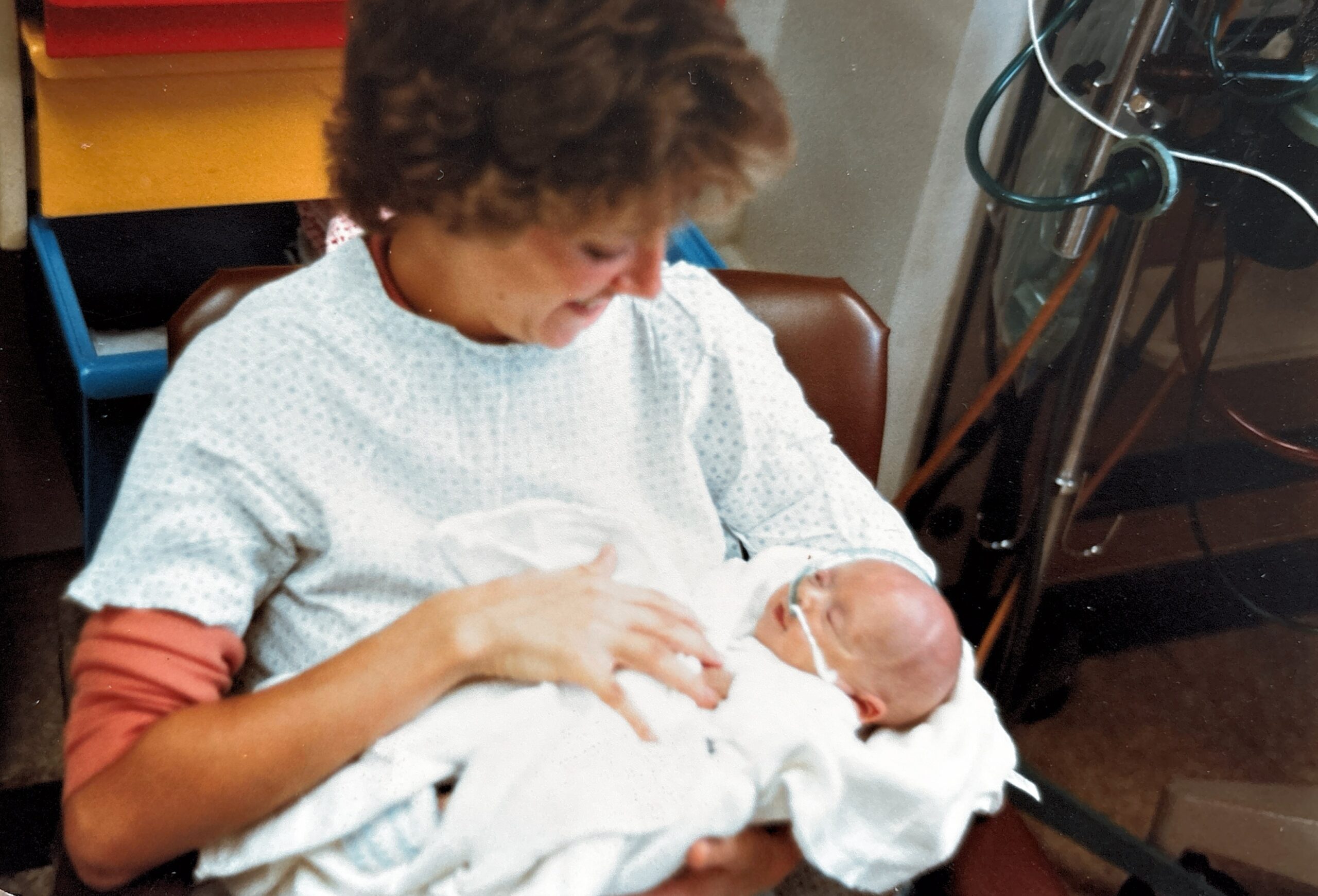137 Days in the NICU: What No One Tells You About Medical Miracles

Author: Ken and Mary Sue Grein
Written: August 1, 2025
Every single day in the NICU was grueling. Our son Jacob was barely holding onto life, and we
lived in a constant state of suspended breath—hoping, praying, and bracing ourselves for
whatever news awaited us behind those sterile doors.
The Daily Ritual of Hope and Fear
We would arrive at the hospital each morning with hearts full of hope, anxious to see our baby
boy, yet terrified of what we might find. All we wanted was something so simple, so natural—to
hold our son, comfort him, and bring him home. Instead, we found ourselves washing our hands
and putting on gowns to enter a sterile room that held Jacob alongside many other babies in
hooded incubators, each just three feet apart from the next.
We never knew if the night had gone well and we’d receive a good report, or if Jacob had
struggled through more complications that would bring devastating news. The uncertainty was
suffocating.
The Heartbreaking Reality
We couldn’t believe the sight of our five-pound baby. Jacob was hooked up to every life-saving
piece of equipment imaginable, leaving just a small portion of his bare body visible. The birth
itself had been traumatic—the doctor had to break his clavicle just to deliver him. He’d been in
footling breech position, and his distended belly revealed a grapefruit-sized cyst on his kidney.
But now, everything was so much worse. His lungs had collapsed. His kidneys had failed. His
heart had stopped. Our precious boy was struggling just to exist.
The monitor system, nicknamed “Mother Bird” stood guard beside him on metal legs that
resembled a stork, with a box positioned at head height holding IV lines and monitoring
equipment. Heart and oxygen monitoring tabs were attached to his tiny chest. A tube went down
his throat, another down his nose. Deep vein lines ran through his wrists.
The sight of all this medical intervention just made us cry. We felt completely helpless, unable to
even offer our son comfort. We hadn’t been able to hold him since the moment he was born.
Our hearts ached beyond description, but the worst part was imagining the pain our little baby
was enduring.
Learning a New Language
Despite these life-threatening challenges, Jacob lived, and we were truly blessed to have an
incredible team of neonatologists, nurses, therapists, and a social worker providing such
specialized care for our son.
Every day, we sat by his incubator listening intently during “rounds,” the medical team’s daily
discussions that gave us the full picture of Jacob’s condition. At first, we didn’t understand the
medical language, but over time our social worker helped us wrap our minds around terms like
intubation, blood gases, blood transfusions, femoral artery, Pseudomonas, and countless other
crucial medical concepts.
We became reluctant experts in a language we never wanted to learn.
The Day Everything Changed
Then came the day we learned what EEG meant. We just couldn’t believe it. The test showed
Jacob’s brain activity was severely abnormal. What? How?
That day, we had to reconcile with a harsh new reality. Jacob wasn’t doing well. It meant our
son was alive, but significant damage had been done. The implications were staggering, and
our hearts broke all over again.
When Science Meets the Miraculous
But then, defying all the rules of science, something extraordinary happened. Jacob had another
EEG. This time, it was NORMAL.
Again we asked: What? How?
God had stepped in and turned everything around. Hope was stirred in our hearts like nothing
else we’d ever experienced. A genuine miracle had taken place right before our eyes,
documented in medical charts and witnessed by a team of doctors who had no scientific
explanation for what they were seeing.
Medical predictions are one thing, but God knows the future. This wouldn’t be the last time
Jacob would defy the experts’ expectations. He would go on to surprise them again and again.
What No One Tells You
What no one tells you about spending 137 days in the NICU is that you don’t just witness
medical care—sometimes you witness the impossible. You learn that hope and heartbreak can
coexist in the same moment. You discover that miracles don’t always look like Hollywood magic;
sometimes they look like a normalized EEG when all medical science said it should remain
abnormal.
You learn that love doesn’t require understanding, and that faith often grows strongest in the
sterile glow of hospital lights, surrounded by the steady beep of machines that are keeping your
child alive.
Most importantly, you learn that some stories are bigger than medicine can explain—and that’s
exactly where miracles live.
This is part two of Jacob’s story—137 days that taught us the difference between medical
predictions and divine possibilities.